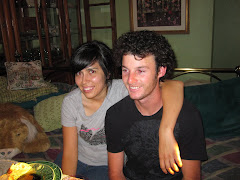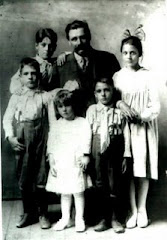Please read John 12:20-50
Jesus and his disciples visit the Temple in Jerusalem again. Besides natural Jews, Gentiles have also come to the Passover. These are proselytes, meaning that they have converted to the religion of the Jews. Certain Greeks, evidently proselytes, now approach Philip and ask to see Jesus. Philip goes to Andrew, maybe to ask if such a meeting would be appropriate. -verses 20-22
Jesus knows he only has a few days of life left, so he kindly illustrates his situation. One grain of wheat has little value. But when it is put into the soil and "dies" ending its life as a seed, it germinates and in time grows into a stalk that produces many, many grains of wheat. Similarly, Jesus is just one perfect man. But if he dies faithful to God, he becomes the means of imparting everlasting life to faithful ones who have the same spirit of self-sacrifice that he has. That's why Jesus states, "He that is fond of his soul destroys it, but he that hates his soul in this world will safeguard it for everlasting life." -verses 23-25
Jesus thinking of others continues teaching, explaining the wonderful reward for following Jesus and ministering to him! It is the reward of being honored by the Father to associate with Christ in the Kingdom. Next Jesus, knowing that he will soon suffer and die continues explaining this to his disciples. Jesus is in full agreement with the entire arrangement of God, including his own sacrificial death. -verse 26 & 27

Jesus' main concern is how his Father's reputation will be affected, so he prays: "Father glorify your name." At that, a mighty voice comes from the heavens proclaiming: "I both glorified it and will glorify it again." -verse 28
The crowd standing around are bewildered. Some think it was an angel speaking, others say it was thunder. On Nisan 10, four days before Jesus' death, God's voice is heard by men. Jesus explains, "This voice has occurred, not for my sake, but for your sakes." It provides proof that Jesus is God's Son, the promised Messiah. Jesus continues, "now the ruler of this world will be cast out." Jesus' faithful life course, confirms that Satan the Devil, the ruler of the world, deserves to be "cast out", executed. Jesus continues to explain that he will die and by means of his death, he will draw others to himself so that they may enjoy everlasting life. The crowd protests: "...Who is this Son of Man?" Despite all the evidence, including hearing God's own voice, most do not believe that Jesus is the true Son of man, the promised Messiah. Jesus now speaks of himself as the light" and encourages his listeners: "While you have the light, exercise faith in the light, in order to become sons of light." Jesus goes off and hides, evidently because his life is in danger. -verses 29-36
The Jews in fulfillment of what the prophet Isaiah wrote, stubbornly reject the evidence that this One is their promised Deliverer. (Isaiah 6:1, 8-10) While the majority do not believe, still many even of the rulers (evidently members of the Jewish high court, the Sanhedrin) actually put faith in Jesus. Nicodemus and Joseph of Arimathea are two of these rulers. But at least for now they fail to declare their faith, for fear of being expelled from their positions in the synagogue. They really miss out! -verses 37-43
Jehovah's love for the world of mankind moved him to send Jesus so that those who put faith in him might be saved. Whether people are saved will be determined by whether they obey the things God instructed Jesus to speak. The judgment will take place "in the last day," during Christ's Thousand Year Reign. Jesus concludes saying, "I have not spoken out of my own impulse, but the Father himself who sent me has given me a commandment as to what to tell and what to speak. Also, I know that his commandment means everlasting life. Therefore the things I speak, just as the Father has told me them, so I speak them." -verses 44-50



















































































3 comments:
ok
what is Nisan?
Nisan is a month in the Hebrew calender, it is about the end of March to the beginning of April in the calender we use today. (Jesus used the Hebrew calender)
Post a Comment